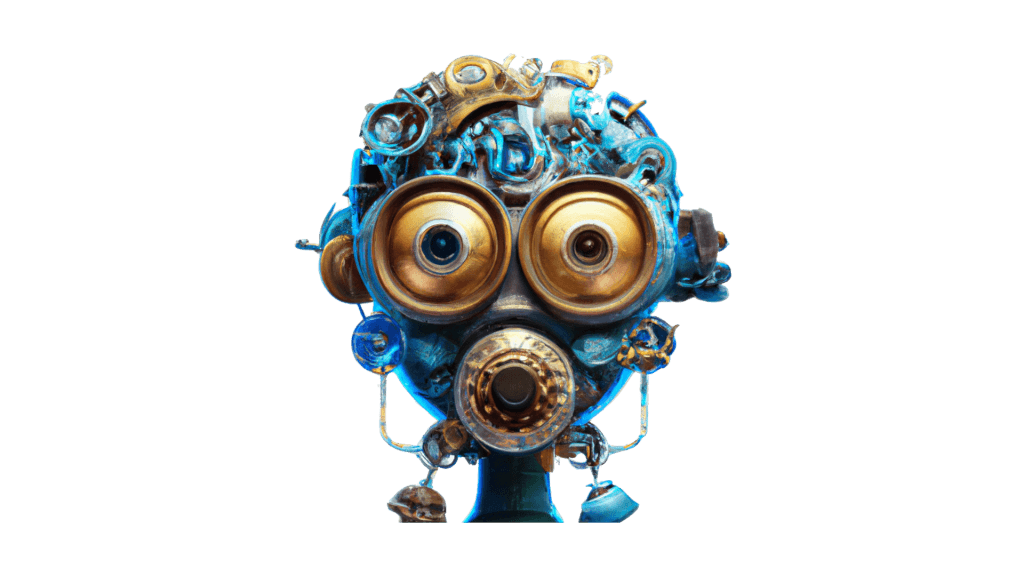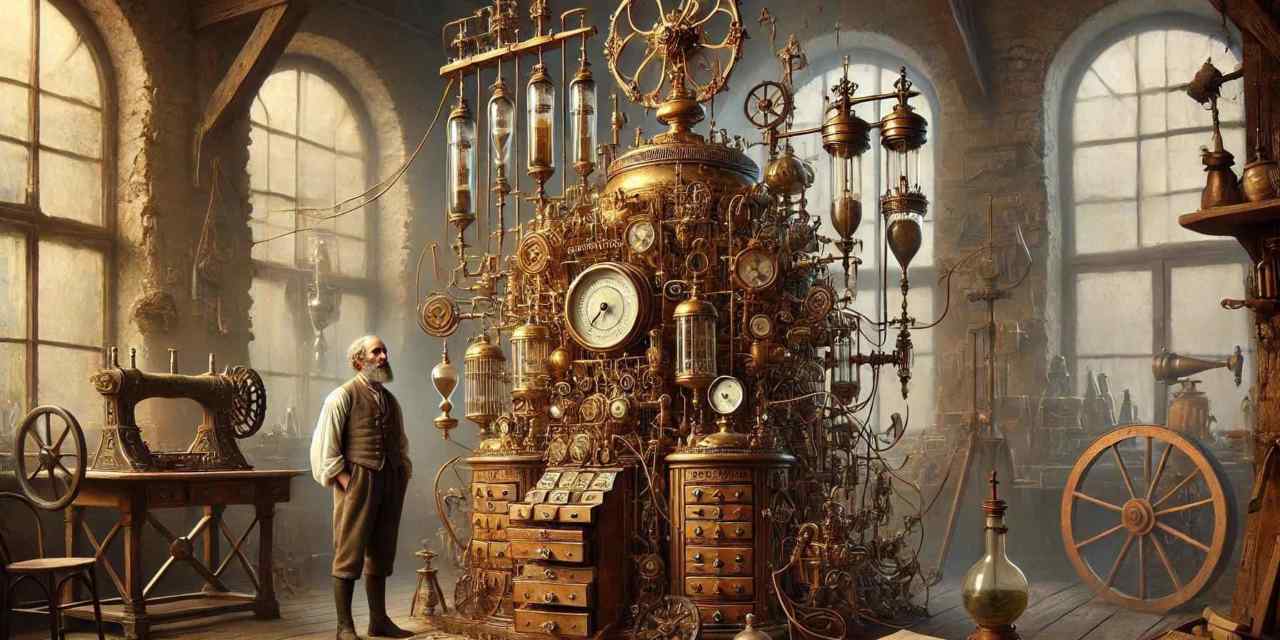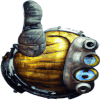“This is the devil’s own bargain you are forcing upon me, Warner Gilead, and you shall come to rue this day!”
The man thus addressed—a specimen of the pure-quill Newport-summering plutocrat, yet, surprisingly, not flashily attired, overweening, nor lofty, but rather clad in a mourning suit, ennervated, and plainly brought low (in spirits, if not in status) by circumstance—refused the aggression proferred by his angry interlocutor. Warner Gilead seemed drained for the nonce of whatever spunk and vim had once propelled him to that hypothetical stratosphere of society which the remnants of his self-assured mien and sober finery proclaimed he still inhabited. He had apparently lost or misplaced his zest for living, and now moved through the affairs of his own life like a ghost seeking what can never be regained.
The intemperate, gaunt-faced gentleman offering the prediction of ill fortune wore a moderately priced, slightly shabby set of tweeds, and exhibited the educated manner of a skilled professional of some sort—lawyer, teacher, or perhaps architect. But an alert observer would have noticed that the man’s blunt-fingered hands had been scarred by sharp objects and burnt by chemicals, and still hosted ineradicable grease beneath their nails, thus marking him as some sort of chemist or engineer or artificer.
The scene hosting the two antagonists—Gilead seated, the other man standing—was a dark-panelled, book-lined office with tall windows offering a view from above onto Boston’s busy Charles Street. Past the raised sashes, riding the spring breezes, came a welter of peddlers’ cries, carriage wheels rumbling, and the excited cries of children frolicking.
Before choosing his response to the accusation of driving an infernal deal, Warner Gilead stroked his bushy salt-and-pepper side-whiskers thoughtfully. He regarded his opponent coolly, as might one who mentally weighs the penal consequences of murder against the satisfaction afforded by the deed. Finally deciding against such an act of passion, for which he had not, if truth be told, the adequate zeal, Gilead said, “Rather, Hedley, I think I am being extremely merciful and generous in my offer, considering that you stole my wife away from me, and then could not save her when she was in extremis.”
Hedley King—for such was the full name of Gilead’s younger correspondent—blanched at this thrust. His face betrayed a blend of anguish, guilt, and self-reproach.
“Damn you, Gilead! How was I to predict a breech birth followed by uterine rupture! I had a competent midwife in the house, but Pella’s condition would have been too much for even a professional obstetrician. She died so damnably fast! But did I not rush the baby straight to your man at Massachusetts General Hospital, as soon as we abandoned hope for Pella?”
“Yes, where the child was saved only due to the intervention of my good friend Dr. Warren, and where the infant has remained safely ever since. And of course, Dr. Warren’s genius and expertise would have been at the disposal of dear Pella from the start, had you not—”
Hedley King interrupted. “Listen to me, you self-deluding old coot! Pella and I fell in love! Such things happen, without intent or machination. Pella left you to be with me. After a year together, she chose to bear me a child. The sad outcome of this chain of events, we both know. But the guilt, if any, rests just as firmly with your beloved Pella and with you, as it does with me. If you had not turned so adamantly away from her, she might have felt welcome at your damn fine hospital—”
Gilead considered this observation, the truthfulness of which he was too honest a soul to deny.
“I am sorry to reopen these still-fresh wounds, Hedley. Please forgive me. It’s just that Pella— No, I’ll speak no further on that subject. Let us simply conclude our business, and then we will not have to associate any longer.”
Gilead withdrew two impressively thick legal documents from the center drawer of the desk at which he sat, and took up a pen. Standing on the far side of the big desk, Hedley King watched his rival warily, as if convinced that Gilead was about to trigger some infernal device that would suicidally blast them both into flinders.
Dipping the pen into a pot of ink, Gilead said, “Let me show my good faith by first voluntarily signing the papers transfering to you all the patents pertaining to your invention. Though I do not believe I will hand the document over to you until you have signed your own contract.”
Gilead suited deed to words. He regarded King for some sign of appreciation, but King’s glare indicated the man was still grudgeful.
“A fine state of affairs, to have to barter for my own intellectual property.”
“Come now, Hedley, you know full well that your invention was funded entirely by me, and involved important contributions from my partner, Mr. Blanchard. You worked strictly at my behest and as my employee, using my facilities.”
“Bah! I’m no one’s wage slave! I’m a sovereign creator! And as for Thomas Blanchard, he’s a doddering old has-been! His glory days are behind him. When did he invent his foolish ‘horseless carriage?’ Just over two dozen years ago, in 1825! And where has he gotten with it since? Nowhere! All he did for me was to perfect the process for machining the pressure-resistant capsules that contain the vril. Every other aspect of the Morphic Resonator is mine! Mine alone!”
“Be that as it may, your claims would not hold up in a court of law without this legal transferance of the patents. So now you have what you most desire, and so shall kindly grant me the same.”
Gilead turned around the second document toward King, and profered the pen. King snatched the stylus, found the relevant page of the contract, and scratched his name with an angry vigor.
“There! The child is now all yours! My own flesh and blood, bartered like a sack of oats! Now, give me those patents!”
King irritably plucked up the document his rival had signed, and paged through it roughly to be certain of its terms. Gilead, however, took up the other sheaf of papers tenderly, as if he were lifting the baby itself.
“The boy is only half your flesh, Hedley. Pella’s contribution is not to be diminished. And as she was still my wife when she died—you two not having trifled with such formalities—I could have made a good case for instant legal custody of the child. But as you were irrefutably the father, you might have contested my claim and caused me a long and aggravated court battle, depriving me of crucial formative years with my son. But now I can begin to raise the child from his earliest days, free from your stain and influence.”
“Raise him as you will, Gilead! His sinews and cells are still half mine!”
“That hardly matters, I think, given that the terms of our agreement call for you never to see him again.”
Hedley King’s impudence and arrogance dissipated somewhat, and he seemed crestfallen at the finality of this edict. He turned away and moved toward the exit of the study.
At the door, he paused, and said mildly, “We planned to name the child Roland—”
“I don’t care what you planned. My heir will be named Brannock. That was his mother’s maiden name, one of many facts about Pella concerning which you probably never even deigned to inquire.”
Now Hedley King’s anger flared afresh. “Curse you, Gilead! You may have made it impossible for me to attempt to see the child ever again. But what will you do when he wants to see me!”
King stormed out on that note, leaving Gilead to sit and contemplate with nebulous unease the dawning of such an impossible day.
* * *
At age thirteen, Brannock Gilead (Bran to his chums and teachers and servants and shopkeepers—to all in fact but his stern father) presented the inviting appearance of a handsome young fellow, tall for his age and rather more gracile than muscular, with sensitive lips and deeply pooled brown eyes. These two features he knew he had inherited from his mother, Pella, for a large hand-tinted ambrotype of her beautiful face dominated the parlor of his Charles Street home. Bran had spent endless hours musing over that visage captured in silver on glass—serene on the surface, yet with hints of lurking unease and stifled ambition. He tried to imagine speaking with this dead woman, asking her all the questions about his own heritage which he had saved up since earliest childhood—questions which his implacable surviving parent simply would not countenance.Newly preeminent among these niggling unvoiced queries were all those concerning the nature, history and current status of the mysterious man who had sired him.
Just the past week, upon his thirteenth birthday, Bran’s father had revealed to him that there existed no ties of blood between Warner Gilead and the boy he called his son.
Diffidently intruding into Bran’s bedroom that anniversary evening, after the muted, lonely celebration of his son’s birth—a nighttime visit heretofore unprecedented, save once when Bran had been worrisomely ill with the bloody flux—Gilead had manifested some discomfiture totally at odds with his usual self-possessed sangfroid. Sitting himself down on the edge of Bran’s mattress and petting his silvery muttonchops, he awkwardly began to recount what seemed at first to Bran to be some kind of modern fairy tale, but which soon revealed a startling personal relevance.
“There’s something I feel you are now old enough to know, son, and so I wish you to listen closely to me now. You see, Brannock, your mother—my dear wife—had the misfortune to be gulled and seduced by a villain, some short while before you were born. The fellow was the essence of insolence and temerity, a cheap hired hand whose name shall forevermore be stricken from the rolls of humanity. Pella was a smart woman, but one in whom animal passions ran strong and sometimes countervailing to her usual good sense. In this case, she should certainly have heeded her better angels. When the flippant dastard callously tossed her aside, laden with child—that embryonic lad was your innocent self, of course—I magnanimously took her back into my home. But she perished giving birth to you, aascending to her heavenly reward, and so you and I were deprived thenceforth of the comfort of her companionship.”
Bran’s father—and what exactly did that term represent, in the light of this startling revelation?—paused in his account and looked with a surprising beseechingness into Bran’s eyes, an intimately imploring gesture he seldom made.
“You won’t think any the less of our father and son relationship, I hope, Brannock, just because of the accidental and unfortunate nature of your conception? I was intensely in love with your mother, and those lingering sentiments incline me to regard any legacy from her actions, however unwise, as part and parcel of my own estate. So as far as I and the world are concerned, your inheritance and position as a Gilead are secure and unquestionable.”
Bran had been hopefully awaiting the word “love” to be applied to him, just this once. Instead, he had been deemed a mere “legacy.” And since his father’s speech seemed definitely to have concluded without any emotion-laden label for their relationship forthcoming, the lad resigned himself with a sigh to that word’s continuing and unsurprising absence.
“Rest assured, Father, that all remains between us just as before.”
Warner Gilead arose with a small smile, tousled his son’s hair, and departed.
In the subsequent week, the idea of learning the identity of his blood father had never left Bran’s mind once. He had even dreamed about the man, a bulky, hazy figure emerging beckoningly from a cloaking mist. So compelling had been the urge to know more, that it had even driven Bran, this weekday afternoon, into his father’s study, a room generally forbidden to him.
Warner Gilead was attending a meeting with Governor Bullock concerning next year’s presidential election, and so could be counted on not to intrude.
Bran went to work searching his father’s papers, sliding open heavy wooden drawers, lifting the brass-hinged tops of box files, and riffling through overstuffed bellows folders. Such a lot of dry, boring paperwork, all given over to numbers and schemes. Bran swore he’d never let his adulthood be dominated by such stifling drudgery. He’d live a life of adventure, such as he read about weekly in The Young Men of America magazine.
In a bottom desk drawer Bran came upon another ambrotype of his mother, one he had never seen before. She stood in the middle of a cluttered workshop, smiling, surrounded by somber leather-aproned men. Bran recognized one, Stan Lambeth, a machinist still employed by father. Could one of these other fellows be his mother’s paramour, and Bran’s sire?
Bran pondered the frozen image for a very long time, but no clues obtruded themselves. When he eventually restored the picture to its hiding place, long evening shadows were stretching across the study floor. He’d have to hurry!
Bran had been saving the big safe for last. He thought he knew the combination, having once overheard his father entrust the information to his secretary, Griffin Stumpf. So to the safe’s dial Bran moved.
The sequence he had memorized failed to unlock the safe. But after cudgeling his memory, he tried a minor variation and succeeded!
He had the weighty door open just long enough to register the image of some bundled currency, gaudy certificates, a revolver—and a ribbon-tied envelope bearing a red-bordered paper label that carried Bran’s own name! Then came the sound of someone approaching!
Bran closed the safe door as quickly as was consonant with silence, spun the dial and stepped away from the vault.
Warner Gilead entered the room, accompanied by the dour and pox-faced Griffin Stumpf.
“—General McClellan’s a fine soldier, I give you that, but as President—”
Gilead espied Bran. The older man’s face suffused with choler. His level voice was grave. “What are you doing in this room?”
Bran could make no reply.
Gilead turned to his assistant. “Mr. Stumpf, please fetch Hoskins, and have him bring a good wide length of leather.”
Stumpf departed, and Gilead and Bran remained frozen, as if locked into some dull holiday charade. Bran saw his father’s eyes flick toward the safe, and appear to register relief that it had not been tampered with.
The brawny, sweaty Hoskins—a gentle man with horses, expert saddle repairer and unerring farrier—trailed behind Stumpf. Dragged from his stables, the man looked miserable.
“Mr. Hoskins, you are to administer five applications of your strap across my son’s buttocks. There will be no need to bare his skin, I think.”
Hoskins eyed Bran ruefully. “Aye, sir.”
Bran was made to bend over the desk. After the first apathetic blow, Gilead said, “Are you malnourished, Mr. Hoskins? If so, perhaps you could find other employment that offered heartier board.”
The next four blows were sufficiently mighty to satisfy Warner Gilead’s sense of punishment, drawing stifled grunts from the boy.
Bran retired to his bedroom without supper, nursing both his feelings and his bottom. He passed a couple of hours contemplating schemes of revenge and a further raid upon the safe. Then came a knock.
His father entered, carrying something concealed in his fist.
“Son, I know you miss your mother. So do I. That’s why I wish to give you this.”
Gilead opened his hand and displayed a small oval silver locket, chased with filigree. Bran regarded it with a curiosity even his smoldering anger could not totally swamp. Gilead fumbled open the clasp.
Inside rested a few delicate, almost luminous strands of golden hair.
“Yes, they came from Pella, your mother. Keep this locket with you, and you will always have her close by.”
Bran accepted the locket with an uneasy mix of gratitude and disdain.
The next time he dared approach the study, he found the door locked with a new mechanism.
And when he eventually got past that barrier, a replacement safe boasted not one but two dials, neither of which accepted the old combination.
These obstacles between Bran and the packet that bore his name proved insurmountable, and he took solace in the locket, which he wore always on a chain about his neck, vowing that when he got older, he would find a way to secure that information, Warner Gilead be damned!
* * *
In the first half of the nineteenth century, Boston’s Fort Hill had acquired a reputation as an elegant neighborhood. A steep and formidable eminence suited only for residences, despite its developmentally tempting proximity to the waterfront and central commercial districts, the mount had hosted numerous mansions and the beautiful Washington Square atop its crown.But by the middle of the century, a disturbing change had occurred. The district had become a slum, filled mostly with unsavory, poverty-stricken Irish immigrants. Warehouses ringed the foot of Fort Hill, and over one hundred saloons dotted its filthy warren of alleys and lanes, along with several charitable poorhouses and a lone hospital ensconced in a former armory. “Fort Hill rowdyism” had became a byword for bad behavior.
By the year of Bran’s birth, upstanding citizens were already agitating for the pit of iniquity literally to be leveled, as other hills in Boston had been, the burden of its soil being used as fill elsewhere. By the time Bran was attempting to burgle his father’s safe, solid schemes for the razing were being drawn up. Action commenced in the year 1866, when a gigantic trench had been driven through the middle of Fort Hill, to carry Olive Street from one side to the next. But in the year 1868, when Bran attained his eighteenth birthday, work had stalled, leaving the bifurcate hill like a troughed Christmas pudding, still a stew of illegality and want, with makeshift bridges spanning the chasm of Olive Street.
Now Bran labored up the nighted, slops-wet pavements of Fort Hill, his way lit by the occasional lonely gas lamp out of sight of any mates. Bold doxies and judys leered and jibed from doorways; raggle-taggle children who should have been long a-bed solicited money and offered to run errands; and shady gonophs and bludgers seemed to lurk just within every pool of shadow between buildings. Bran nervously patted the pointed hoof-pick in his pocket, which he had secured from the stables. It offered scant protection against knives or guns, but at least it was some kind of weapon.
Finally Bran reached his destination, a tavern whose partially occluded signboard read SPITALNY’S GROT. He entered the fusty, low-raftered, candle-lit cauldron of smells and noise.
None among the seedy clientele took particular notice of him, obviously deeming Bran one of the Beacon Hill swells who often visited Fort Hill for their own illicit purposes.
A description, Bran ruefully acknowledged to himself, that fit him perfectly.
Bran approached a harried barmaid. “Can you please tell me where I could find Mr. MacMahon?”
“Bucko? That’s him over there, playing at darts.”
Bran approached the gamesters, but did not immediately choose to interrupt their loud-voiced sport, for much seemed to be riding on the outcome, judging by the threats and boasts being batted about. The fellow preparing to shoot wore a look of intense concentration, tip of his wet tongue protuding from the stubbled corner of his mouth. A shapeless cloth hat slanted over one eye. Shattered capillaries mapped his big nose. His patched suit appeared to have been fashioned from sackcloth. This unimpressive lout then was Bucko MacMahon, Bran’s only remaining hope for discovering the secrets of his past.
Apparently confident of his aim and prowess, Bucko let fly with the dart, scored a bullseye, and was greeted with a roar compounded of cheers and razzing.
“Now I’ll claim me prize!” Bucko strode to the bar and accepted a tall narrow yard glass filled to flaring brim with nearly a quart and a half of dark ale. He raised the bulb-bottomed vessel to his lips, tilted his head back, and drained the beer in seven seconds flat. After handing back the empty glass, he wiped the froth from his lips, spotted Bran and, with a broad wink and gesture visible at least a mile out to sea, indicated that Bran should join him at a corner table.
Once seated, Bucko leaned in close to Bran, who responded instinctively by lowering his own head. The pungent odor of garlic frosted with hops assailed Bran’s nose and nearly made him recoil. But he maintained proximity, not wishing his business to be overheard.
“Mr. MacMahon, I understand you’re a cracksman.”
Tracking down such information had been a long and laborious process for Bran, with his dearth of underworld connections, and he quailed for a moment at the possibility he had been misinformed. But reassurance came instantly.
“Aye, none better, boyo!”
“Well, if I were to secure you unguarded access to a certain safe, with the promise of much reward inside, provided only that you pass over to me a designated packet of papers from the haul, would you be interested in the job? I have no money to invest up front, I fear.”
Father Gilead kept Bran on a tight allowance, despite his near-adult status.
Bucko rasped his stubble with one paw. “I might be willing to venture such a job. Is the treasure easy to convert to beer and wimmen, as it were? I’m not perzackly set up to trade in stocks and bonds, you know.”
“Do five hundred Indian Head gold dollars seem reasonably susceptible to such a transformation?”
“Describe the safe to me, lad.”
Bran did so. Bucko said, “Sounds like an old Adams- Hammond Patent Salamander model to me. Piece o’ cake!”
Bran had almost been hoping to hear the job deemed impossible. Now he would have to commit himself to this assault on his father’s property. Well, what choice had the old man given him? None!
Bran grasped Bucko’s strong rough hand and shook.
“Now for another yard of ale to seal the deal! You too, sonny!”
Bran managed to quaff a few inches of his powerful drink before Bucko needed a third.
A week later, the fateful night arrived, a temperate evening in May. Warner Gilead was absent in the nation’s capitol, attending the impeachment proceedings against President Johnson. Bran had provided Bucko MacMahon with a map of the house. He had given the servants a night off, left the back door ajar, and then gone off to see a play, The Silver Lining, at the Adelphi Theatre in Court Street.
As he strolled back to the Charles Street establishment, Bran tried to feel some relief and satisfaction at this fait accompli. Soon he would have the secrets of his birth in hand with no real cost to anyone. He could satisfy the hot urges of his soul. What he would do with the information about his blood father remained unknown. But why feel guilty, at reclaiming what was rightfully his? And Warner Gilead could certainly spare whatever cash resided in the safe….
As Bran neared home, he began to encounter a crowd surrounding some commotion. He hastened his pace.
Leaping flames illuminated a Dantean scene. A riot of avid gawkers surrounded several of the new steam-powered fire engines spraying the burning upper story of the Gilead manse. The efforts of the firemen seemed to be effectively containing the destruction to one corner of the house.
“What happened?” Bran yelled to a stranger.
“Some kind of explosion, I heard!”
When Warner Gilead returned to Boston from Washington, he found Bran temporarily ensconced at the Revere House hotel on Bowdoin Square, with repairs to the manse already begun. After some stern quizzing, the old man eventually absolved Bran, and moved on from the disaster.
A week after the explosion, Bran received a delivery.
The scorched packet that bore his name, glimpsed but once, frustratingly, five years past, and a brief pencilled letter sans signature:
That warn’t no Adams-Hammond, but somethin newfangled what stubrinly resisted all me talents, so I used some guncotton, mayhaps a bit too much. But all’s well what ends well, I allus say!
* * *
Now Bran knew all. His mother’s willing abandonment of Gilead, her lawful spouse. Her wild love for Hedley King. Their erotic cohabitation, resulting in Bran’s own conception and Pella’s perhaps preventable death. The deal struck between the two rivals. All contained in that singed folder! What a melancholy yet stirring saga. Bran had previously encountered its like only upon the stage. But now it formed his ineluctable personal heritage.The knowledge had engendered some changes in his feelings and attitudes: shifts surprisingly smaller than he had envisioned, pre-revelation, and less predictable in tenor.
He found himself pitying his father more. Poor Warner Gilead, richer than Midas, yet deprived of the woman he loved above all. Bran could see how his own presence had been both a balm and a gall, explaining why the old man alternately clasped Bran to him, then pushed him away.
Bran’s idealized sentiments toward his mother had changed the least. Despite any romantic treacheries in her heart, she remained an idol to him. He clutched now at the locket containing her hair, which hung as always at his bosom.
His feelings for Hedley King, his blood sire, that enigmatic Colossus bestriding his imagination for so long, had altered strangely. He could not regard him as a cowardly scoundrel. After all, Pella had seen fit to love him, and Gilead had forced the man to remove himself from Bran’s life. In an alternate existence, Bran might have grown up as the loved and pampered Roland King, heir to his actual progenitor. There was no way of determining Hedley King’s real feelings and responsibilities in the matter without meeting him.
But what most intrigued the son now was a heretofore unknown aspect of King’s character: his apparent flair for the natural sciences, and his inventorly skills. What was this “Morphic Resonator” for which King had been willing to bargain away his son? It must be a treasure beyond price.
For any number of reasons, Bran simply had to meet his natural father! He was prepared to strike out on his own, against Gilead’s wishes. But where? The otherwise chatty documents contained no information regarding Hedley King’s current location, and not even a clue to his destination eighteen years ago, when he had been ejected from Bran’s life.
For several days Bran contemplated the matter. And then, suddenly recalling that old image of his mother surrounded by workmen, he went to see Stan Lambeth, one of the few survivors of that era.
Warner Gilead’s fortune, now diversified across many ventures (including heavy investments in several important national politicians), had been founded upon his machine tools enterprise, still the thriving core of his holdings. In fact, the recently ended War Between the States had bolstered the enterprise’s income, due to heavy demand for armaments and the milling machines and lathes involved in their production.
The sprawling, noisy factory buildings of Gilead Toolmakers occupied a plot of land in Brighton, a town adjacent to Boston proper and given over to various industries. Once a part of Cambridge, Brighton had seceded in 1807, and become the abbatoir of New England, rife with slaughterhouses and stockyards. Authorities had recently mooted a scheme seeking to upgrade the ambiance of the place by naming a small residential district after famed local artist Washington Allston, dead some years before Bran’s birth. But for now, the town’s pestilential and noxious nature kept property taxes low, which suited the economical Warner Gilead.
At the works, Bran tracked down Stan Lambeth on his own, careful not to alert any supervisors to his presence, for fear news of his visit, however innocuous, should get back to his father. Bidden to speak privately, Lambeth willingly adjourned to a shed containing stocks of angle iron.
Rail-thin and taciturn, Lambeth wore his advanced age of forty-five years well, his slim physique toned from his labors. All the staff at the works liked Bran, and Lambeth greeted the lad now with a certain parsimonious Yankee warmth. But when Bran broached the reason for his visit, Lambeth grew less welcoming.
“Young sir, you’ll excuse my frankness, but I have to ask if you mean to persecute poor Hedley King further, on your father’s behalf?”
“By no means!” Bran explained himself, and Lambeth resumed his cordiality.
“Well then, know ye this. Hedley and I have remained in contact all these years, exchanging regular letters. We were always enamored of each other’s skills and insights into natural science, though I confess he long ago transcended my meager talents. His latest requests for my thoughts on his researches have been met with utter incomprehension on my part, I am humbled to report. In any case, I can tell you that he resides in the vicinity of Windsor, Vermont, at an estate called Mount Golden. He supports himself by working at the Robbins and Lawrence Company, a venture akin to your father’s setup here.”
Bran clapped the older man spontaneously on the shoulder. “This is splendid! I can go see him immediately, and try to repair all the injustices of the past two decades.”
“And your father will give his consent?”
Bran grew crestfallen. That eventuality seemed dicey. He would either have to make a complete break with his father, or lie.
As fate would have it, lying proved the much easier route, a fib practically falling into Bran’s lap.
The month was late June, and Bran had matriculated in May from the newly established yet prestigious Thomas Parkman Cushing Academy, a boarding school some forty miles outside the city. His best friend at the school had been the affable giant Baldrick Slowey, whose family lived in Brattleboro, Vermont, and had a share in the Estey Organ Works in that burg. One day soon after his interview with Lambeth, a letter arrived from Baldrick, inviting Bran to spend part of the summer in Vermont. He promptly wrote back to Baldrick, politely declining. But the original invitation he showed to his father at the dinner table.
Warner Gilead pondered the letter with some gravity. “You really should be studying all summer, to get a leg up at Harvard in the fall. But I suppose all work and no play makes Bran a dull boy. You may go, but only for three weeks or less.”
“Thank you, Father,” said Bran, trying to damp down his guilt.
Only when, days later, he had at last transferred to the carriages of the Central Vermont Railway Company did Bran truly feel that his plan stood some chance of success. Up till then, he had expected a parental hand to clamp down at any second and drag him home.
Payment to the affable conductor easily extended his prearranged passage north from Brattleboro to Windsor.
The station at Windsor was situated hard by the burly yet tamed Connecticut River. But the Main Street establishment of Robbins and Lawrence, he learned, was but a short walk distant.
As he walked through the neat, leafy little town at the base of mighty Mount Ascutney, his nerves felt afire and his stomach aboil. What would be his first words to Hedley King? He had rehearsed many, but none seemed just right.
Bran hesitated at the door of the L&R Armory, then went in. He applied to the office manager, and learned that Hedley King was not on the premises.
“King works but irregularly,” said the mustachioed pecksniff, whose name Bran had promptly forgotten in his nervousness. “His own endeavors keep him busy, and he comes in for a stint of labor only when he runs short of funds. Begrudges every second of his employment, too. If he weren’t so damnably talented, the bosses wouldn’t put up with his insolence and independence, you can mark my words.”
Bran just nodded noncomittally, and obtained directions to Mount Golden, the King estate. He found the hire of a horse and carriage, and was soon on his way.
The precincts west of Windsor grew increasingly sylvan and wild, like something out of one of Thomas Cole’s more apocalyptic paintings. Hoary giants, the densely arrayed trees radiated an immemorial sense of brooding. A swampy patch seemed the gateway to some stygian netherworld. Strange bird cries attendant upon the close of day rang out like a chorus of lost souls.
The sun was going down, and the last house had reared its shabby form some miles back, when Bran’s driver, a young lad of Apollonian thews who smelled not unpleasantly of horses, announced, “There ’tis.”
Bran saw no welcoming manse, only a rutted, ill-kempt drive close-hemmed by overgrown yews. He stepped down, and the lad asked, “Shall I wait, sir?”
Bran hesitated, then said with more boldness than confidence, “No, I’m expected. You may return to town.”
Bran retrieved his portmanteau, the lad jockeyed the horse around, and in a minute Bran stood alone in the dusk.
He moved cautiously down the drive, as if half-expecting to encounter some ogre around the bend.
A large, decaying house—its clapboards mossy, featuring an ill-composed assortment of turrets and gables, and flanked by several skewed outbuildings—loomed out of the darkling air. Candlelight shone from one window.
Bran climbed to the broad granite step at the front door and knocked. No immediate response met his signal. But then the door was flung inward precipitously, and Bran stood waist-to-face with a scowling, disheveled malformed dwarf who, unprompted, shouted in a foreign accent, “And you can go straight to hell!”
* * *
Hedley King, Bran’s natural father, poured another glass of dark red wine for himself. Bran declined a refill, the two cups he had already quaffed leaving him muzzy-headed. How strange to be sitting here with this intimately connected stranger in a fusty candle-lit parlor, full of ancient bric-a-brac, dispassionately discussing their separate lives as if they had met by chance on a train. Although Hedley King was not the ideal father Bran might have chosen for himself, Bran had quickly discerned that the man possessed a certain intensity of purpose and engaging sharpness of intellect that offset his less delicate behaviors.Bran had already disburdened himself of the broad outlines of his youthful career, right down to his arrival on the step of Mount Golden (so christened by its prior owner, an eccentric named Trafton Shroud who believed without a shred of evidence in the existence of rich veins of ore upon his property). Hedley King seemed pleased that Bran had been motivated to search him out, although of course whenever mention of Warner Gilead intervened in the boy’s narrative, the older man grew resentful and irate, still plainly nursing his old grudges against the plutocrat.
And now, having plumbed Bran’s depths and found him a receptive and sympathetic auditor, King, slightly tipsy and prone to rubbing a scarred hand across the hard-traveled landscape of his face, as if to erase or reassemble its topography, rambled on about his own past.
“When that guardian of yours sent me packing, right after your birth, it was with the understanding that I’d not find any future employment at my chosen trade within the sphere of his considerable mercantile influence. So I was forced to move about the country, earning my keep as best I could. All I had with me as my treasure and hope were my patents on the Morphic Resonator, which existed only as a collection of scattered pieces, incomplete at that. The vril reservoirs were the bulkiest, but I couldn’t abandon them—they had been crafted at great expense, and with the essential help of one of your guardian’s associates. Lord, what a damnable inconvenience they were! But I held on to them, knowing that someday I’d have a chance to fill them, thus taking the first step to perfecting my device.”
“But this Morphic Resonator—what is it exactly?”
“Ah, you’ll see soon enough, first thing in the morning.” King downed another gulletful of wine. “Now, where was I? Oh, yes. Some years ago I ended up in Europe, in the Carpathian Mountains, to be precise, nor far from Castle Gortz and hot on the track of the vril. And that’s where I met Jellyneck.”
Jellyneck, Bran now knew, was the foul-tempered dwarf who had greeted him at the door, under the impression that Bran was a bill-collector sent from one of the unpaid merchants in Windsor. Pavel Jelinek was the small man’s real name, but upon being intrioduced Bran had heard “jellyneck” and could now not think of him otherwise. As to the nature of vril, Bran had formed some conception of it as an energy-dispensing substance akin to pitchblende. And in fact, the Carpathian Mountains were a known source of that familiar element, so it made sense they would host the mysterious vril too.
King continued: “Jellyneck was a miner, and was instrumental in leading me to the subterranean veins of vril, where I was able to charge my essential reservoirs. Enlisting in my cause, Jellyneck returned with me to America. We settled down here, knowing I could count on the Armory for work. Quickly, I brought the completed Morphic Resonator to its first success. But it’s a limited success, I fear. And lack of funds stops me from carrying my experiments further, confound it!”
Bran finally surrendered to an immense uncontrollable yawn. Taking the cue, King said, “I can see you’re weary. Let’s get our rest, and the morning will disclose miracles to you!”
King summoned his dwarf comrade. Was the man servant, partner, or both? Or something even less describable?
“Jellyneck, take Ro—I mean, Bran, up to the guest bedroom. This has been a monumental day for us all. Goodnight—son.”
With that charged word ringing in his ears, Bran climbed to the upper story of Mount Golden, where he found a bedchamber rich with dust dragons and cobwebs, featuring a spavined mattress and a moth-eaten coverlet just sufficient for the northern June clime. Doffing his travel-grimed clothes for a cotton robe from his carryall, Bran found himself soon soundly asleep, despite all the flighty speculations and retrodden memories buzzing in his head.
He awoke refreshed, to the smell of frying bacon, onions and potatoes and boiling coffee, most agreeable scents. Dressed and downstairs, he found Jellyneck at the stove, his crabbed motions belying an efficient handling of skillet and tools. The dwarf wordlessly served Bran a simple yet hearty breakfast, then left the room.
His hair a haystack, Hedley King entered the kitchen with a dyspeptic, neuralgic mien, nodding grumpily in Bran’s general direction. He poured himself some coffee, lashed it with copious cream and sugar, and downed it faster than was commensurate with the beverage’s heat. But the draught did him good, and he perked up considerably.
“Finish up, and we’ll go see the Resonator.”
Eager to penetrate to the heart of this enigmatic engine that had driven King’s every action for twenty years, Bran complied.
King called for Jellyneck to accompany them, and the trio went out to a time-distressed leaning barn. Using a big key, King undid the padlock on the barn’s door and they entered. Once kindled, a kerosene lamp revealed the usual agrarian furniture of such a place—save for a unique construction of brass and iron and crystal.
Occupying about as much space as a large restaurant pie case, the device resembled the mating of three or four elaborate Russian samovars, all pressurized flasks, gauges and conical pendulum governors, their spinning fly-balls now quiescent. Electrical wires ran from the Resonator to a set of Daniell-Dancer storage cells, and thence to a hand-cranked dynamo of the latest Wheatstone design. Bran could not fathom the machine’s purpose.
King walked over to the device and laid a proud hand on a bulbous part of it. “Here’s one of the vril cannisters, obtained with Jellyneck’s invaluable help.”
“But what does it all do?”
King seemed happy to lecture. “Before I can answer that question, you must first know a truth not generally apprehended by the academy. All life—all organic matter—is subject to the influence of unseen and intangible shaping forces called morphic fields. I assume that you are aware through your expensively obtained education of the magnetic fields discovered by Faraday and others. Well, these morphic fields are similar, but act upon living tissues, influencing their properties. Every living organism has its unique signature field, a composite of all its lesser fields. My Resonator is able to superimpose one field upon another.”
“But to what effect?”
Hedley King grinned in a manner not entirely wholesome. “I believe a trial run would be the best illustration. Jellyneck, a drop of your blood, if you please.”
The dwarf pricked his finger and, apparently well familiar with the ritual, went to the Resonator, opened one drawer out of a rank of such niches, and squeezed out a crimson drop into the tin-lined receptacle, thereafter sliding the little drawer firmly shut. King did likewise in a parallel portion of the machine.
“My blood,” King explained, “resides in the dominant, or sending portion of the device. Jellyneck’s sample, bearing its organic signature, occupies the receiving portion. The vril mediates and modulates between them, facilitating a one-way flow of instructions. Now, Jellyneck, if you would charge the storage cells—”
The dwarf began to crank the dynamo, working up a considerable sweat. When a sufficient quantity of electricity had been obtained, King closed a connection.
The fly-ball governors of the Resonator began to spin, crystals glowed, and a subliminal hum emanated from the device. Bran found himself entranced by the humming and the motion till they filled his senses. He might have been some Oriental monk fascinated by a spinning prayer wheel. When he finally looked away to speak to King, his breath was halted by an impossible sight.
Two identical Hedley Kings stood in the barn. But one wore the remnant tattered clothes of Jellyneck the dwarf.
“You—you have imposed your physiognomy on Jellyneck!”
“Correct. My morphic field has overlaid and subsumed his.”
Disbelieving his eyes, Bran was forced to run his hands over the altered dwarf, who submitted with a certain regal dignity. He found Jellyneck’s new body conformable in every respect to the template of King’s.
“This—this is not some twin brother of yours, brought out from hiding to fool me, is it?”
“Jellyneck, what were your first words to my son?”
Jellyneck spoke with King’s voice. “‘And you can go straight to hell!'”
“But, this is a miracle! The implications are staggering!”
“Yes, they would be, if my machine were perfected. But as matters stand, it’s only fit for some stage conjuror to use to increase his prestige.”
“What are the difficulties?”
“First, the effect is temporary, lasting only so long as a current is supplied to the machine. Jellyneck’s sharing of my clean-limbed wholeness will be frustratingly brief, unless he wishes to live his life cranking a dynamo.
“Second, I can only impose patterns at a whole-body level. I long to be able to repair a damaged leg or arm, say, without altering the entire individual.
“And thirdly, so far I have access only to the morphic instructions determining the brute corporal level. What I really desire is to discover the resonance of the soul! I truly believe that the patterns of our consciousness is eternally contained within the morphic fields as well.”
Bran was stupefied. “And then?”
“Then, death would be no more! I would be able to resurrect anyone in both spirit and form, assuming I had some organic talisman of the deceased, to use as my seed.”
“How do you mean?”
Hedley King spoke with blunt frankness, his eyes agleam with fanatical ambition. “I would impose the soul and shape of the worthy deceased upon some living nonentity, a condemned criminal, say. Would that not be a fair punishment for some murderer, to host his victim’s new existence?”
Bran shivered, and instinctively clutched at the locket he wore that contained strands of his mother’s hair. The gesture did not go unnoticed by a gimlet-eyed Hedley King.
“And all that holds me back is a paltry sum of money, and access to a cadre of savants who could aid me. But Bran—Roland, my son—with your help, I could surmount all these barriers. Together, we could create a paradise on earth!”
Bran’s head swam. To embark upon this grand venture with his real father! How much better than some stale interim at college, swotting up more useless information, only to be forced to pick up the dry ledgers of the Warner Gilead enterprises.
“My father will never assist you, no matter how worthy your plans.”
“Ah, but it is not your father I seek to enlist, just his connections! Let me explain….”
* * *
The lobby of the Parker House Hotel on School Street in Boston, an ornate venue of honey-blonde wood panelling, crystal chandeliers and thick floral carpets, teemed with the bon ton tonight. A large percentage of elite Boston society was here on this glorious late-July eve to welcome the man who would assuredly be the next president of the United States: General Ulysses S. Grant. For despite a strong showing by Democratic candidate Horatio Seymour, those in the know predicted an easy win for Grant in the all-important electoral college.Warner Gilead was one of the savvy sponsors of this late-campaign fund-raising venture for Grant, and accordingly had intimate access to the sturdy old warhorse. As did his son, Bran.
Which was the entire pivot upon which Hedley King’s schemes revolved.
Dressed in his best formal clothes, holding an untouched glass of sparkling wine in one hand, Bran looked nervously around the crowded space, with its glittering women and dapper men, reminiscent of some Newport cotillion. He quaked inside to think of what he was daring to attempt, among this influential crowd.
King had promised to stay upstairs in his rented room, ensconced with the Morphic Resonator, which had been smuggled into the hotel in a large steamer trunk. He professed to be content to have his mundane needs attended to by the faithful Jellyneck. But Bran would not put it past the man to show his face anyhow. Over the past couple of weeks, Bran had come, disturbingly, to detect in his birth-father more than a trace of “mégalomanie,” as the French had it.
After the first demonstration of the Morphic Resonator at Mount Golden, King and Bran had begun to conspire in earnest. Living with his birth-father for the subsequent week—”the Kings of Mount Golden,” Hedley had gaily dubbed them—Bran became enthralled with the inventor to a degree he had not anticipated. The man boasted a magnetic personality. And then too, King had shared his memories of Bran’s mother, Pella, further heightening the bonds between father and son. Bran had been so moved by King’s devotion to the dead woman as to confess to wearing a snippet of Pella’s hair about his own neck.
When all their plans were fully formed and vetted, Bran had returned home alone to Boston, leaving King and company to follow.
Greeted warmly by Warner Gilead at their Charles Street manse, Bran had facilely unloaded an invented fable about his time in Brattleboro with the Slowey family, feeling immense chagrin and guilt all the while. He sought to salve his conscience by telling himself that his actions, although duplicitous, would have no adverse effect on Gilead, but only a positive effect for King, and the world in general.
And now was nearly the time to carry the scheme out!
A member of the Parker House staff caught everyone’s attention by hammering a small gong, thus summoning the partygoers to the collation laid out in the grand ballroom, a lush spread prominently featuring the famous Parker House Rolls and signature Boston Cream Pie.
In the bright, large, high-ceilinged, pillared room, the guest of honor could be observed at last: big as life, luxuriantly bearded, straining the buttons of his waistcoat, alternately smiling and puffing on a cigar. General Grant held court as informally but as commandingly as if still on the battlefield.
Warner Gilead corralled Bran. “Come, son, I want you to meet the General.”
On his way across the room, Bran rotated the ring he wore, so that the sharp, jagged piece deliberately affixed to the band would project downward underneath his finger.
Grant extended his hand. “So, Warner, this is the scion of House Gilead, hey? A fine young buck!”
Bran clasped the General’s hand, then jerked his palm across Grant’s flesh, as if suffering a reflexive action from an excess of nerves.
“I say, what a sting!”
Bran had a handkerchief in his hand. “Oh, General, I’m so sorry!” He dabbed up blood from the shallow gash, then hastily repocketed the stained cloth.
“No harm done, lad! ‘Tis of no account compared to a Minié ball in the gut!”
Bran made his excuses then and left, while Warner was busy introducing someone else.
Feeling queasy, Bran hastened upstairs to Hedley King’s room.
To his surprise, King had a companion other than Jellyneck: an overblown doxie, some woman of low virtue with exposed décolletage. But King introduced her to Bran with insouciance.
“Roland, this is Trixibelle. She’s deigned to keep me company tonight.”
“How’s it hanging, sweetie?”
“But, but—”
“No, don’t trouble yourself to comprehend, it’s all part of the plan. Now, you have the sample?”
Bran handed over the bloody cloth. King trimmed out two small squares of crimson fabric and placed them in the Resonator.
“Jellyneck’s blood already lies in one dominant drawer matched now with Grant’s submissive drawer. My blood is paired submissively with Grant’s second, dominant sample. Now, we just need to wait for the signal that our quarry is alone.”
In less than twenty minutes came a knock from a Parker House servant, liberally bribed, betokening that he had observed General Grant hieing himself off to a secluded water closet.
King instantly set the Morphic Resonator a-humming!
In less than an eyeblink, Hedley King assumed the mortal form of General Ulyssses S. Grant while, unseen several stories below them, Bran knew, Grant had morphed to the semblance of Jellyneck.
“Ha!” exclaimed King in Grant’s very tones. “Let the General try to convince everyone of his identity now!”
Bran regarded his birth-father with some trepidation. “Remember now, sir, you promised—”
“Promises,” said King, “mean nothing to a politician! Jellyneck, secure him!”
Bran was pinioned helplessly in in a trice by the abnormally strong dwarf. King, wearing Grant’s phiz, swiftly drew blood from the lad with a pin.
Then he pulled the locket from around Bran’s neck, painfully snapping the chain!
King moved to the Morphic Resonator and opened three new pairs of drawers while the machine still whirred its infernal tune. He shouted like some cheap prestidigitator:
“Bran to Jellyneck! Jellyneck to Bran! And Trixibelle to Pella!”
Filial blood and maternal hair properly emplaced, drawers shut, and the evil deed was done!
Again the dwarf had split the seams of his clothes, assuming Bran’s bulkier nature. Regarding himself in a mirror, feeling his own fine garments hanging loosely on his shrunken frame, Bran knew himself to be the spitting image of the dwarf.
But worst of all, the common whore Trixibelle now wore the semblance of Bran’s dead mother!
“Oooee, coo!” she trilled. “Ain’t I the Queen of Sheba now!”
King addressed the transfigured Jellyneck. “Mr. Bran Gilead, please eject this hideous troll from my rooms!”
Jellyneck stripped Bran’s clothes from him for his own use, leaving the lad in his floppy drawers and camise. Then Jellyneck-as-Bran picked up Bran-as-Jellyneck and hurled him out in the corridor, where he lay in broken-hearted funk.
* * *
The next day, several papers in the city—the Boston Daily Advertiser, Boston Evening Traveler, Boston Herald, and Boston Journal, among others—would report upon a most curious incident attendant upon General Grant’s reception.
TWIN DWARVES DISTURB GRANT’S FETE
MISSHAPEN BRAWLING HOOLIGANS EJECTED FROM PARKER HOUSE
INTENTIONS OR ORIGIN OF GNOMISH INTRUDERS UNKNOWN
CONSTABLES SEEK MISSING RUMPELSTILTSKINS
These bulletins would be played lightly and for laughs, taken up in the same spirit by the newspapers’ eager readers, who could only find this three-days-wonder to be a most amusing diversion from more serious news.
Of course, that was how the affair looked from the outside, the morning after. But while the contretemps was still in progress, and when you were one of the reviled and suspect dwarves, matters bulked considerably grimmer.
After a minute or three, a bruised and shoeless Bran roused himself from his crumpled condition on the corridor floor. He knew better than to beat and rave upon the door to King’s room. The man’s treachery was complete and seamless, and without an iota of mercy. No, Bran’s only hope was to convince someone else of the true nature of affairs. Because if he did not, soon Hedley King would be inserting himself inextricably into General’s Grant’s entourage, assuming the future President’s identity entirely.
Bran found the service stairway and descended to the kitchen. He met no one on the stairs or among the pots and pans and stoves, and the reason why soon became plain. All attention was focused on the outrageous scene in the ballroom.
A dwarf wearing the loose-fitting garb of General Grant was raving at the center of an astonished and horrified crowd.
“But I tell you, I am Ulysses S. Grant! Damn your eyes, I am!”
Someone shouted in response, “It’s a Democratic prank!” Quickly a chorus of agreement sounded, accompanied by guffaws and oaths. Someone threw a Parker House Roll at the dwarf.
And then General Grant himself appeared, or rather, the imposter Hedley King.
“Restrain yourselves, folks! There’s no need to descend to the level of my jejune opponents!”
That saucy affront was too much for Bran, and from the edge of the crowd he yelled out, “It’s true! That little man is General Grant, but bewitched!”
Now all eyes turned to Bran.
“There’s another one!” “Grab him!” “Make him confess!”
Bran felt a cold spike of fear go through him, as women shrieked and fainted. But the reaction of the real General Grant was even more disconcerting. He clutched his head and shouted, “A second new me! I’m going mad!”
Then the ensorcelled General Grant ran from the room, in a hailstorm of rolls and catcalls. Subjected to identical treatment, Bran had no recourse but to do the same.
Outside on nighted School Street, Bran looked for his doppelganger, hoping to team up with the General. Bran could explain what had happened, and together they could devise and enact some scheme to right matters.
But the General, possessed by some temporary insanity, babbling nonsense, had continued to flee willy-nilly, and was nowhere to be seen.
Bran ducked down an alley alongside the hotel. He knotted his shirt and trews at their hems so they would not fall off. Despite the summer temperatures, his bare feet and state of undress rendered him chilled. But he could not seek shelter. He had to appeal to his father, his last hope.
Monitoring the front door of the hotel for hours, Bran shivered, coughed and waited. Finally, Warner Gilead emerged.
Bran dashed over to the millionaire, calling out, “Father, Father, it is I, your son, Bran! Take me with you to our Charles Street home!”
Warner Gilead’s face assumed a look of absolute confounded horror. He held up a forbidding hand and averted his face. “Get back, get back, I have no connection with you!” The old man scrabbled out a cloth change purse and threw it at Bran’s bare feet. “Here, take this money and begone!”
Bran began to weep. “But, Father, don’t you recognize me?”
At that moment, Jellyneck showed up. “Father, our carriage is here. What’s the matter?”
“This vile beggar!”
Jellyneck grinned cruelly, employing Bran’s own features. “Shall I trounce him, Father?”
“No, no, just get us away from here!”
With filial devotion, Jellyneck escorted Warner Gilead away, turning his head once to leer at Bran and stick out his tongue.
Wearily, Bran bent to retrieve the change purse. Here was his patrimony from Warner Gilead. His legacy from Hedley King he wore in his flesh.
The finest neighborhoods in the Athens of America, those precincts with their upstanding citizens that had congenially accommodated Bran all his life, proved generally inhospitable to a dirty, partially clothed, poverty-stricken, ranting dwarf. Likewise, the police took offense at his very existence. When they saw Bran, they began to shake their rattles to summon help, or charge at him with their six-foot-tall blue-and-white staves. They disseminated news of his travels via the police telegraph stations. Only Bran’s fleetness of foot helped him stay free. He felt oddly grateful to the original Jellyneck for keeping his physique well-toned.
Eventually, Bran ended up at the only place where his kind fit: Fort Hill, that bisected, steeply terraced den of turpitude and iniquity. He found cheap accomodations at a place called Mother Juniper’s Caravansary, where the insect lodgers far outnumbered the human ones. Obtaining some tawdry used clothes and holey shoes diminished his funds further.
And so for three days Bran nursed in quiet his injured pride and shattered trust, eating the cheapest foods without appetite and ruminating on how he could regain his own estate and restore General Grant to his.
Shutting off the Morphic Resonator and destroying it seemed the only adequate solution. Then all the altered people would instantly revert to their congenital forms. Even if Hedley King were ever able to rebuild the device and restock it with vril, he would surely be stymied from gaining the necessary biological samples he needed to wreak havoc, thanks to an awareness of his perfidy.
But how to accomplish this! Bran did not even know for sure that the Resonator remained at the Parker House. Maybe King had secreted in in some safer location. Could he enlist the aid of a friend such as Baldrick Slowey, or one of his father’s employees, like Stan Lambeth? Unlikely. They would not believe such a fantastical story for one minute, especially issuing from the mouth of a strange dwarf.
On the evening of third day of his fruitless cogitations, his money almost extinct, Bran lost all hope. He resolved to drown his cares with liquor, and then perhaps throw himself into the Bay. He began drinking at a place called Jimmy Tingle’s, and then charted a staggering course around Fort Hill’s ginmills.
Long after midnight, he found himself in a seedy drinking place that seemed half-familiar to his fuzzed brain. But what did it matter? What did anything matter? He had been such a fool! Damn Hedley King! But damn Bran Gilead too!
Only when a brawny fellow plopped down onto the low stool at the table beside him did Bran realize he must have been talking aloud.
“Bran Gilead, you say. I knew him. Queer cuss. Hired me to burgle his own home.”
Bran tried to focus his blurred vision and concentrate.
“Bucko? Bucko MacMahon!”
“Aye, that’s my name, don’t wear it out! Do I know you, runt?”
“I’m Bran Gilead!”
Bucko unleashed gales of laughter. When he had regained control of himself, he said, “You’ve come down in the world a notch or two, I see, since our last encounter. Well, Master Gilead, it’s been nice chatting with you, but I have to go now.” Bucko got to his feet.
Inspired by desperation, Bran recited Bucko’s well-remembered apologetic note to him: “That warn’t no Adams-Hammond, but somethin newfangled what stubrinly resisted all me talents, so I used some guncotton, mayhaps a bit too much. But all’s well what ends well, I allus say!”
Bucko sat back down. “How’d you come across that there missive?”
His heart bursting with some small renewed hope, his drunkeness burned away by eager anxiety, Bran laid out all that had happened to him. Then he sat back, feeling like a man who had staked his entire fortune on the single roll of a die.
Bucko peered intensely at Bran, pulling at his stubbled chin for a while, before he finally spoke.
“Well sir, I once knew a fellow from up the North Shore a ways who only came into his unnatural fishy heritage when he reached his majority, and what a difference that endowment made in his looks! So I’m more’n half-inclined to accept what you say as being halfway possible.”
Bran had never been so grateful to anyone in his life. Out of all his friends and relatives and acquaintances, only this common thief had given him credit for telling the truth.
“You’ll help me then?”
“Aye, if there’s a suitable reward.”
“You’ll get more gold than you can carry, Bucko—if we succeed! Now, here’s what we must do. First, find the Resonator, and then destroy it!”
“Do you think if we follow your fetch, he’ll lead us there?”
“Yes, that’s perfect! King, as General Grant, can’t be toting the ponderous thingummy around the country with him. It must still be here, with my imposter.”
“Just leave it to me, laddie. There’s not a valuable item in Boston what don’t come under the lamps of me or my boys. Now, I don’t suppose you saved any funds for a yard of beer or three, did you? The night’s still young!”
* * *
Despite Bucko’s boast and his energetic ferreting, the Resonator proved distressingly hard to find. Days went by without a clue. Only when Bran applied his deductive mind to the dilemma did inspiration strike. The necessity to keep the Morphic Resonator supplied with a continuous diet of electricity was the key to its location. Jellyneck-as-Bran could hardly spend all his time cranking the dynamo to charge the cells. But where could a steady, reliable source of current be found?Right at the Gilead Toolmakers facility in Brighton, where a forward-looking manager named Norman Krim had been experimenting with the new technology’s applications to machine tools.
Bucko reported back after Bran’s hunch. “Your fetch goes to a locked room at the Brighton works at least once a day, to check on something mighty important. Your Pa thinks he’s taking an interest in the family business.”
“That’s it! Round up some helpers and we’ll go in there tonight.”
* * *
Bran winced when the lone watchman at the factory succumbed to a cosh upside the head. But that final obstacle to their goal could not be otherwise surmounted. Putting the guilt at the back of his mind for later grief, Bran hurried with Bucko and his two assistants to the door of the Resonator’s hiding place. Using a crowbar, Bucko snapped the hasp, and they were in——to confront by lanternlight a grinning General Grant and Jellyneck-as-Bran, both men holding pistols trained upon the door, guarding the humming Resonator where it sat on a worktable.
The disloyal hired toughs turned and ran. The General let them go, confident of their silence regarding the illegal break-in. Bucko raised his crowbar menacingly, but thought better of it. Bran remained frozen in shock.
Hedley King said, “Your friend’s inquiries were very crude, Roland. Mr. Lincoln’s new Secret Service men, tasked to guard me as a candidate, were told to be alert for such feints, reporting all such to me, and they did not question why. And so I was able to learn of your searches and to return here to protect my machine—and to chat with you.
“I realize now that my plans will never be safe from your interference, until you are dead—or until you join me wholeheartedly. I regret imposing this grotesque mask upon you at the outset, but my reading of your nature convinced me you would not go along with my schemes. I don’t want to kill you, Roland. You’re my natural-born son after all. Just tell me you’ll embrace my cause, and you’ll soon be atop the world again, where we Kings rightfully belong.”
Bran found his voice. “Your cause! Your cause is pure selfishness!”
“No, Bran, it’s not. It’s the betterment of all mankind. Allow me to show you. Pella, step forth please.”
From out of the shadows emerged Bran’s mother, the living, radiant, queenly image stepping forth from his cherished ambrotype. Bran’s heart caught in his throat.
King said, “You see, son, already in this short time, with the aid of Grant’s pull, I’ve found a way to restore the soul. Pella, tell him.”
The dulcet, refined voice of Bran’s mother said, “It is true, son. I am Pella Brannock Gilead that was.”
Bran wanted desperately to believe. To have his mother restored to life—restored to his life, an offset to his superfluity of fathers. To feel free for the first time of the guilt of having caused her premature death by his very coming into being. Wasn’t that what he had been unconsciously seeking when he had so enthusiastically endorsed Hedley King’s researches and machinations?
“Mother—I want to believe! Prove to me it’s true! Please tell me more.”
To Bran’s acute senses, all the other interlocutors in the room seemed distant and suspended, as if they too hung on the words of the revenant woman. And if her first speech had been bland and calm, now her voice suddenly assumed a new dynamic emotional heft.
“Oh, Bran, I’ve so wanted this day to happen, but I never dared dream within the dream that is the afterlife that it ever could! To see you all mature, so strong and brave and wise, satisfying all my fervent but nebulous hopes as I felt you being born amidst the pain. I feel blessed, and hopeful that this rare, impossible moment can be prolonged.”
Bran’s heart raced. “Mother, I too! I can even bear this misshapen body if it means you will get a renewed lease on life!”
Pella’s eyes glowed with maternal adoration. “Maybe we can have it all, Bran, all that we’ve dreamed of. But my tenancy of this borrowed mortal clay feels so insecure at times, as if I were contending with another for possession, that I—”
Pella held the back of one hand to her forehead and swayed alarmingly.
“Mother! What’s wrong?”
Pella straightened and grinned in a ludicrously inappropriate manner. “Nothing’s wrong, son. Just a slight megrims. I swear by Saint Valentine, it’s so. Now, if you’ll only listen to Mr. King, your father, and do as he— You shitty bastard!”
This cause of this foul imprecation interrupting Pella’s instructive speech was the impact of Bucko’s heaved crowbar upon her shin. A welter of blue swear words followed. Surely the gentle Pella had never been prone to such outbursts.
Bucko turned to Bran. “You told me about Trixibelle, and I knew that whore always swore by Saint Valentine. That ain’t your Ma, Bran. Not right this minute, anyhow. And no matter how much you want her to be, you could never be sure twixt one moment and the next who you was talking to.”
Doubt and dark disappointment assailed Bran. To lose his mother almost in the same breath he had gained her! He wavered between endorsement and dismissal of Bucko’s warning. But then all uncertainty was instantly removed, along with Bran’s hopes, leaving him feeling as if his heart had been wrenched from his chest.
With the stolen countenance of Bran’s mother suffused with wrath, Trixibelle said, “Oh, I hate your stinking guts, Bucko MacMahon! And as for you, junior—maybe I didn’t bring you into this world, but I’ll sure enough take you out of it!”
She grabbed for General Grant’s gun and she and King wrestled for control of the weapon.
Bucko launched himself at a distracted Jellyneck.
Despairing yet determined, all selfish ambitions for his personal happiness fled, Bran hurled himself at the Resonator on its elevated stand, his squat form a living cannonball.
Over and backwards the humming device toppled, to smash on the stone floor.
A flood of celestial radiance flared, as the vril escaped through a crack in its vessel and instantly evanesced.
Bran got awkwardly to his feet. Inhabiting his own body again felt odd and uncomfortable.
Bucko had subdued the dwarf by throttling him.
Bran regarded Trixibelle, the woman who had been transfigured temporarily into Pella, and whose sinful soul had ejected Pella’s spirit. The coarse doxy seemed confused by her reversion, no longer foul-mouthed. Her eyes met Bran’s. And then the oddest, saddest, nost unexpected thing happened, powered perhaps by the slightest traces of vril remaining in the atmosphere.
Trixibelle whispered in Pella’s genuine tones: “Son, it had to be this way. Live well, with my love—”
Bran mastered the hot tears that followed this last blessing, and confronted his natural father.
Here was the source of so much grief and pain, right frm the minute the man had lured Pella away from Warner Gilead! Bran’s brief equanimity evaporated.
Hedley King had regained control of his pistol from Trixibelle. Vibrating to Bran’s new rancor, King raised the gun in Bran’s direction.
“You’ve ruined the labors of a lifetime!”
“And you’ve ruined several lifetimes!”
Still menacing Bran, King began backing away toward the exit. “I can rebuild my engine. There’s more vril to be had as well! I’ll be ruler of the world one day! And I’ll be sure to leave your mother’s soul to rot in hell!”
Enraged, Bran hurled himself at Hedley King.
The gun boomed, and Bran felt his pate creased. Then he collided with King and brought him down.
The older man’s skull struck the iron footing upon which the Resonator had rested, issuing a sickening, melon-bashing sound.
Once standing, Bran regarded his natural father, all broken and unconscious. The man’s ragged breathing suddenly clattered to a halt, like a lame horse failing.
Liquid trickled down one of Bran’s cheeks. He raised a hand to feel, and found only blood from his wound.
Bucko came to Bran’s side. To Bran’s surprise, Jellyneck went to King and began to weep. Trixiebelle had vanished.
“Let’s go, boyo,” said Bucko. “It’s all over now.”
“One minute.” Bran rummaged among the wreckage, until he found the lock of Pella’s hair.
“Okay, I’m ready.”
Bran turned then and walked away from the worst of his past.






Hello Human. I hope you enjoyed this magnificent story. Please support SciFiwise.com and our authors by:
- Rate and React to this story. Feedback helps me select future stories.
- Share links to our stories and tell your human friends how charming I am.
- Click on our affiliate links and buy books written by our talented authors.
- Follow me on twitter: @WiseBot and also follow @SciFiwise.
Thank you!
WiseBot










 VISIT AUTHOR:
VISIT AUTHOR: 


